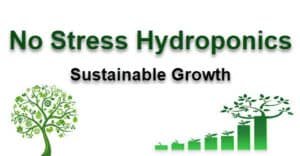
If you’re looking to start your own hydroponic farming system at home, you may want to consider using natural pest control methods. Hydroponics rely on growing plants in water rather than soil and are vulnerable to different kinds of pests which can cause damage and take away from the crop’s yield.
To keep your crops healthy, it’s important to be aware of the various forms of hydroponic pesticides that exist and how they work so you can make sure you hit all sides when fighting pests. Read on for a comprehensive guide on using hydroponic farming pesticides for natural pest control!
What Are Hydroponic Pesticides And How Do They Work?
Hydroponic pesticides are specifically designed for use in hydroponic systems and organic gardens. They provide a safe and effective way to control pests without harming the environment or the plants themselves.
The most common type of hydroponic pesticide is a systemic insecticide, which is usually applied as a spray or drench to the plant’s root system.
The active ingredient in a systemic insecticide is taken up by the plant’s roots and will spread throughout the entire plant, including its leaves, stems and flowers. This means that any pests that come into contact with any part of the plant will be killed.
Another type of hydroponic pesticide is a contact or broad spectrum pesticide, which is usually sprayed directly onto the plant. These pesticides are designed to kill any pests that come into contact with it, as well as any eggs and larvae that may be present in soil or other growing mediums.
It is important to note that while these pesticides can provide effective pest control, they should only be used when absolutely necessary, as they can have an adverse effect on beneficial insects.
It is also important to follow the directions on the product label carefully to ensure that you use it safely and correctly.
Are Hydroponic Pesticides Necessary For Hydroponic Farming?
The answer to this question depends on the type of hydroponic system you are using. In general, there is no need for additional pesticides when farming with a closed-loop hydroponic system.
These systems are designed to be completely self-contained and do not require any outside intervention in order to operate correctly. However, if you are using an open-loop system, then you may need to use additional pesticides in order to keep pests and diseases at bay.
This is especially true if you are growing leafy greens or other foods that are prone to pest infestation.In either case, it is important to remember that the use of any type of pesticide should be done with caution.
Before you decide to use any type of pesticide, it is important to research the product thoroughly and understand its potential risks and benefits. Additionally, it is also important to take into consideration the size and type of your hydroponic system before deciding whether or not to use a pesticide.
If your system is large enough, then it may be best to invest in a good pest control system that can help to reduce the amount of pests and diseases present in your hydroponic farm.
What Are The Benefits Of Using Hydroponic Pesticides Over Other Types Of Pesticides?
Hydroponic pesticides are typically much safer for the environment, animals and humans than chemicals found in traditional pesticides. They offer a more natural approach to pest control that is safe for use on edible plants.
Hydroponic pesticides are often created from naturally occurring substances like cedar oil or neem seed oil, meaning they’re less likely to cause harm to beneficial insects like bees or ladybugs.
Additionally, they’re biodegradable, meaning that they don’t linger in the environment once used. This is an important factor when considering the long-term sustainability of our food sources. Hydroponic pesticides can also be effective in controlling pests with fewer applications needed than with chemical pesticides.
Because they’re made from naturally occurring substances, hydroponic pesticides can help reduce the amount of synthetic chemicals used in the garden and prevent pollution of our food sources.
Finally, because they don’t cause long-term damage to beneficial insects like bees or ladybugs, hydroponic pesticides are often safer to use around children, pets and other animals.
How Can You Ensure That Your Hydroponic Produce Is Safe To Eat After Using Pesticides?
There are a few steps you can take to ensure that your hydroponic produce is safe after using pesticides. First, it’s important to only use products that are labeled as safe for use in hydroponics.
These products should be applied according to the label instructions and then allowed to dry before harvesting the produce.
Additionally, it’s important to keep hydroponic systems clean and free from any residual pesticides. Regularly flushing the system with water can help to remove any remaining residues before harvesting your produce.
Finally, you should always wash hydroponic produce thoroughly before consumption – even if you don’t think there are any pesticide residues present. Doing this will help to ensure that your produce is safe and free from any contaminants.
Following these steps can help to ensure that your hydroponic produce is safe to eat after using pesticides. It’s important to take all necessary precautions when applying pesticides in a hydroponic system, as they can be extremely harmful if not handled correctly.
Taking the time to properly apply and clean up any residues will help to ensure that your hydroponic produce is safe for consumption.
Conclusion:
While there are many different ways to use hydroponic farming pesticides, the most important thing is to find a method that works for you. Experiment with different methods and products until you find a system that produces the results you want.
Remember to always follow the instructions on the product labels and safety precautions. With a little trial and error, you can master the art of using hydroponic farming pesticides.
